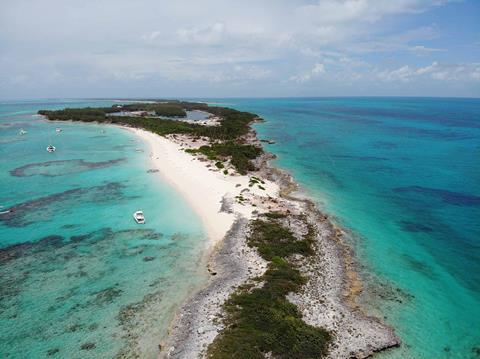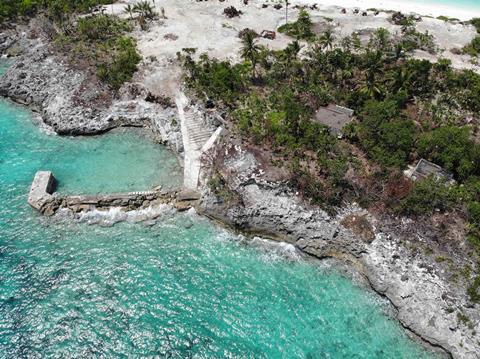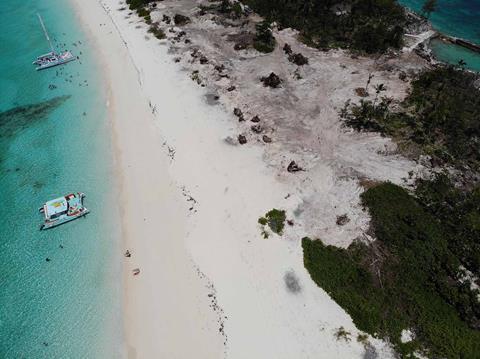Client seeks ideas for “highly sustainable” 43ha scheme on island with no roads, power or water

The new owner of a private island in the Bahamas has commissioned a RIBA competition to generate proposals for a “highly sustainable” luxury resort.
Located around three miles from New Providence Island – home of Bahamian capital Nassau, the private island is described as a former pineapple plantation that has no roads, no power, no water supply and no formal residential accommodation.
The RIBA competition is seeking ideas for three elements of the resort, which has a 43ha footprint. They are a beach club – inspired by venues in Tulum in Mexico, the Greek island of Mykonos, and St Tropez in France; a remodelled marina and reception point; and high-specification accommodation for guests.
Proposals can broach an individual element, two elements, or all three.
The brief says accommodation should be “fully equipped” and include a range of one and two bedrooms with modern interiors and state-of-the-art bathrooms.

It adds that the offer should include outdoor terraces and private beach cabanas, and that there should also be “more secluded and private accommodation benefitting from more generous terrace and garden areas”.
The brief states that “thoughts on MMC and modular construction would be welcomed”, but cautions that ease of construction, materiality and sustainability should not come at the expense of style and beauty of the accommodation.
It suggests modular units could be dropped into place and camouflaged to blend in with the landscape using natural materials, and proposals could consider whether accommodation might be raised above ground on a platform to minimise the footprint of development.
Design teams are also warned that as the island is low lying and in an area prone to natural disasters, they should consider how the development can be adapted to extreme weather events such as hurricanes, flooding and heat stress, as well as long-term climate change.

The two-stage competition features an initial anonymous assessment of concept design ideas and the selection of a longlist of up to 10 concepts for each category.
The second stage will include a shortlisting process, where selected entrants will be asked to refine their ideas. Shortlisted designers will be invited to present their final concepts to the competition’s evaluation panel.
A prize of £25,000 will be awarded to the overall winner with another £25,000 prize fund distributed among other prize winners on the panel’s recommendations.
Grimshaw managing partner Kirsten Lees, who is RIBA’s architect adviser for the competition, said the exercise was a fine chance for practices to demonstrate their capacity to deliver an environmentally friendly tourist destination in a stunning setting.
“This is an exciting opportunity to use innovation and creativity to create a high-end resort experience that simultaneously protects and enhances this beautiful location through the promotion of genuinely sustainable and net carbon positive proposals,” she said.
The submission deadline for the first phase of the competition is midday on October 27. A winner is expected to be announced before the end of the year.
















1 Readers' comment